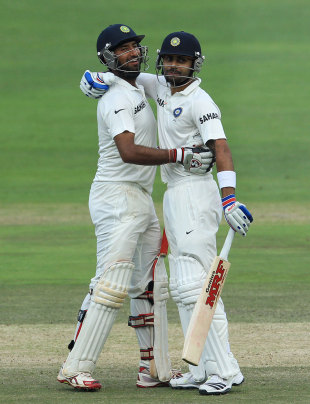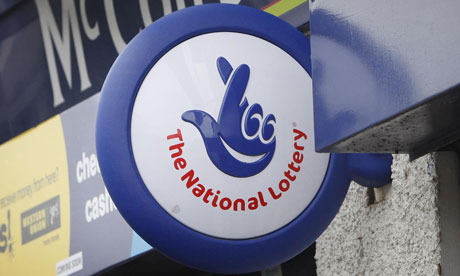Although all these things help, the real secret of great learning lies elsewhere – inside children themselves. Increasingly, researchers are discovering that what children bring to the classroom matters every bit – and in many ways more – than what the classroom can offer them.
Children with the attitude and disposition that encourage good learning will flourish even in a mediocre school, while those who come with a mindset that hampers learning won't be able to make much of even the best educational opportunities.
Numerous studies in the US and elsewhere show that test scores leap, often by more than 10 per cent, when children are encouraged to develop good attitudes towards themselves and their learning. As a result, schools around the world are starting to offer programmes to help their students develop key character strengths.
A recent "positive education" conference at Wellington College in Berkshire drew participants from America, Singapore and Australia to discuss how teachers can help students "grow" their inner cores.
But parents have been left out of this learning loop, and often don't realise that there is far more to securing a good education for their children than simply bagging a place at the best school in the neighbourhood – schools and teachers can only turn children into terrific learners if those children's parents are laying down the foundations at home that will encourage pupils to step up to the challenges of the classroom.
There is growing evidence that character traits such as resilience, persistence, optimism and courage actively contribute to improved academic grades. And there are six key qualities that parents can foster in their children that will help them do their very best in school. These are:
1. Joie de vivre
The ability to love and appreciate life might sound wishy-washy in the hard world of exam results, but love and security feed a host of qualities that great learners need. These include the ability to be open and receptive, to be willing and to feel connected.
Meanwhile, cultivating an attitude of appreciation means being able to enjoy the journey of learning, wonder at nature, relish a good story, feel good about achievements, and enjoy the companionship of the classroom. All of which, in turn, feed confidence, excitement and curiosity back into the learning loop.
2. Resilience
For years, resilience has been known to be essential for great learning. Martin Seligman, the US psychology professor who has studied this extensively, has shown that it helps children think more flexibly and realistically, be more creative and ward off depression and anxiety.
Resilient children give things a try. They understand that learning has plenty of setbacks and that they can overcome them. Resilient children talk to themselves differently from non- resilient ones, and don't turn mistakes into catastrophes ("I've failed my maths test, it's a disaster. I'll never get maths!"). Instead, they look at a wider, more positive picture ("Ugh, that was a horrible test, and I screwed up, but I didn't do enough work. Next time I'll do more revision, and it'll probably be a better paper as well").
3. Self-discipline
There are many famous pieces of research that show that children's ability to control their impulses appears to lead to better health, wealth and mental happiness in later life. In school, self-discipline is central.
Great learners need to listen, absorb and think. They need to keep going through difficult patches, stick at hard tasks, manage their time well and keep mental focus. Children who bounce about the classroom shouting the first answer that comes into their heads will never be great learners.
Of course, a joyless, overly controlled child will never be one either. Balance matters. All children need to develop a functioning "internal locus of control".
4. Honesty
Honesty matters for great learning because its opposites – deception and self-deception – hinder progress. Great learners don't say "I'm brilliant at science" but, "I'm OK on photosynthesis, but not sure I've nailed atomic structure yet." And this needs to start early.
The pre-schooler who speaks up and asks what a word means in a story, rather than pretending to know, is already on the way to being a skilful learner. Honesty allows children to build good links with teachers and mentors. It grows confidence, attracts goodwill, and gives children an infallible compass with which to steer their learning.
5. Courage
Learning anything – piano, physics, tennis – is about approaching the unknown, and stepping up to new challenges. Great learners are just as frightened of this as others, but can overcome their fear and find focus.
They are able to try, fail, and try again. They can also navigate school life skilfully. Children need moral courage to turn away from distractions and to be willing to be seen as "a geek" if they want to study, while developing courage also helps them to stand their ground through the temptations of the teenage years.
6. Kindness
Great learners are kind to themselves. They understand that learning is sometimes hard, and not always possible to get right, but keep a "good" voice going in their heads to encourage themselves on.
A kind disposition also draws other people to them and bolsters their learning through the help and support of others, as well as allowing them to work productively in teams and groups. A kind disposition also feeds listening and empathy, which in turn foster deeper, more complex learning.
All these character qualities are great for learning – and also for life. Research shows that they help people build more confidence, face challenges better, earn more money, have more satisfying careers, build stronger relationships, and keep depression and anxiety at bay. Yet, sadly, figures also show that increasing numbers of children are growing up with less ability to control their moods, direct their actions, or show empathy and self-mastery, while many mental health problems, including eating disorders and self-harm, are on the rise.
Our children badly need us to help them develop stronger, more flexible backbones, and all the qualities that contribute to a strong inner core can be actively fostered and encouraged by parents (parents and schools working together is even better). Just as muscles grow stronger with regular exercise, so character traits are strengthened by thoughtful encouragement and reinforcement.
Hilary Wilce is an education writer, consultant and parent coach. Her new book, 'Backbone: How to Build the Character Your Child Needs to Succeed' (Endeavour Press, £2.99) is now available





